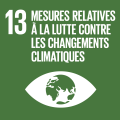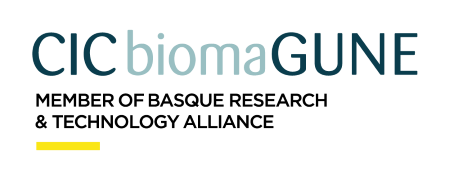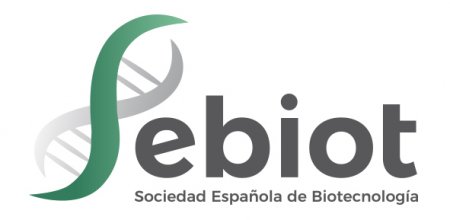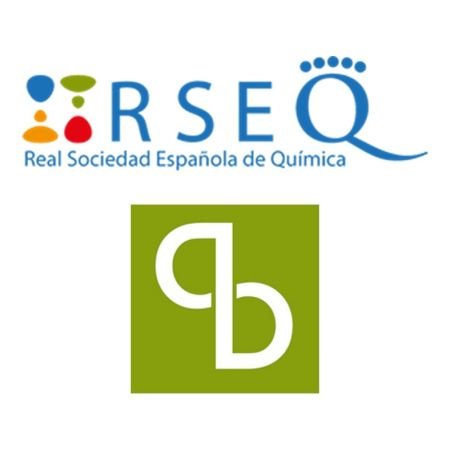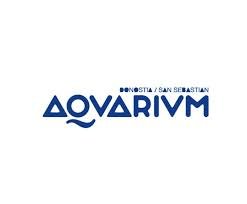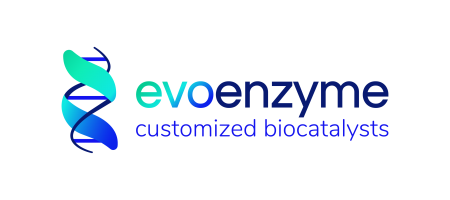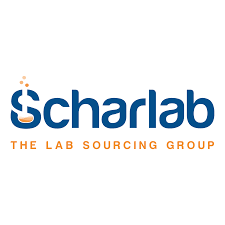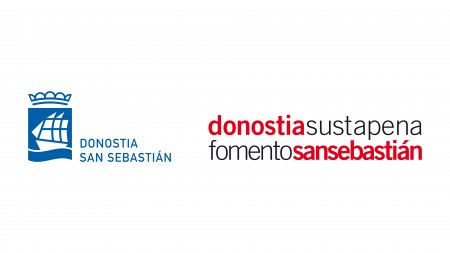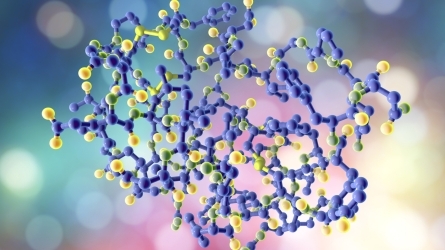
IV Spanish Biocatalysis Conference
Azalpena
The workshop aims to strengthen the biocatalysis research community in Spain, with special emphasis on generating a new network of young researchers in this area. We are pursuing organizing a conference/workshop where a series of lectures will be given in English by international researchers in the area of biocatalysis.
Each of these papers will open a specific session dedicated to a sub-area within biocatalysis. Afterwards, there will be a series of oral presentations assigned to each thematic sub-area. The oral presentations will be selected from all those submitted abstracts through a peer review process. In addition, participants whose abstracts have not been selected for oral presentation will contribute with a poster presentation.
After each of the lectures and oral communications, there will be time for discussion and scientific debate. Finally, all sessions will be moderated by specialist researchers in each of the subareas.
The deadline to send communications will be April 30, 2024. Registration will remain open until August 26 (All abstracts sent must have registration associated with them. Communications will be limited to one per participant, they will be sent following the proposed template and in <name_surname.pdf> format. Indicating during the registration process the thematic area of your communication:
- New approaches to discover and isolate biocatalysts
- Computational biocatalysis
- Enzyme immobilization and process intensification
- Biocatalysis in non-conventional solvents
- New reactions and multi-enzyme systems
Helburuak
The aim is to strengthen scientific and technical collaboration between biocatalysis research groups at both national and international level.
Jarduera nori zuzenduta
- Unibertsitateko ikaslea
- Irakasleak
- Profesionalak
Zuzendariak
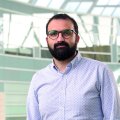
Fernando López Gallego
CIC biomaGUNE
Fernando López Gallego is IKERBASQUE Professor and leads the heterogeneous biocatalysis group (www.flg802.wixsite.com/flopezgallego) at the center for cooperative research in biomaterials (CIC biomaGUNE). Previously, he was ARAID researcher at the University of Zaragoza (2017-2019), junior IKERBASQUE researcher (2014-2017) at CIC biomaGUNE, junior technologist at REPSOL technology center (2013) and postdoctoral researcher at the University of Minnesota (2007-2010). He developed his predoctoral studies at the Institute of Catalysis and Petrochemistry (ICP-CSIC) (2002-2007) where he graduated as PhD in molecular biology from the Autonomous University of Madrid. His line of research consists in the development of biocatalysts based on enzymes supported on solid materials to develop new technologies in the field of sustainable chemistry and biomedicine.
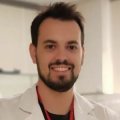
Alejandro Herrera Orrego
CIC biomaGUNE, Postdoc
Alejandro Herrera Orrego carried out his PhD on stabilization and assembly of enzymatic biocatalysts with Prof. José M. Guisán and PhD Javier Rocha-Martín (Institute of Catalysis and Petrochemistry (ICP-CSIC), Spain). Then he moved with Prof. Dr. Aurelio Hidalgo (Universidad Autónoma de Madrid, Spain) to do his first post-doc on developing ultra-high enzymatic screening assays. In 2020, he was awarded a Bikaintek grant and joined the group of Prof. Dr. Fernando López-Gallego in CIC biomaGUNE (San Sebastián, Spain) for developing artificial metabolic cascades involving Coenzyme A thioesters as key intermediates.
Hizlariak

Ana Isabel Benitez Mateos
Ana I. Benítez-Mateos is SNSF Ambizione Group Leader at ETH Zürich (Switzerland) since 2023. She obtained her PhD in 2019 under the supervision of Prof. Fernando López-Gallego at CICbiomaGUNE (Spain). Then, she joined the group of Prof. Francesca Paradisi, initially at the University of Nottingham (UK) and later at the University of Bern (Switzerland) through a Seal of Excellence Postdoctoral Fellowship. During her PhD and Postdoc, Ana investigated the immobilization of enzymes and their integration into flow reactors for more sustainable synthesis of pharmaceuticals and other valuable molecules. In 2022-2023, she served as the project manager for an Innosuisse Innovation Project aimed at integrating cost-efficient biocatalysis into large-scale processes through an industrial partnership. Currently, her research group develops robust biocatalysts by harnessing the biochemistry of extremophilic animals.

Antonio García-Moyano
Antonio García-Moyano is senior researcher at NORCE’s Marine Biotechnology group where he works on the development of bio-based solutions for industry, with focus on enzymes and microbial cell factories. Antonio has a background in microbiology and molecular biology from Universidad Autónoma de Madrid, and has competence in metagenomic approaches for enzyme discovery as well as synthetic biology methods for strain engineering.

Valeria Grazu Bonavía
Dr. Mª Valeria Grazú holds a permanent research position at the Instituto de Nanociencia y Materiales de Aragón (INMA), part of the Spanish National Research Council (CSIC). With over 20 years of experience, her expertise lies in the biofunctionalization of micro/nanostructured materials for biotechnological and biomedical applications. Her current research focuses on utilizing magnetic heating for remote activation of therapeutic enzymes in biomedical applications and the efficient production of pharmaceuticals and bio-commodities through multienzyme cascades. Dr. Grazú co-founded Nanoimmunotech SL (NIT), a spin-off company, where she served as Chief Technical Officer (CTO) for nearly 2 years. In this role, she successfully brought to market several kits based on nanoparticles.Her scientific excellence and leadership in Nanobiotechnology have gained international recognition. Nominated by the CSIC, she has been a member of AcademiaNet since 2020 and has been selected to participate in the EIC Woman Leadership 2nd Cohort program. Since 2020, she holds positions of responsibility at INMA, serving as Head of the Department of Bionanomedicine and as a member of the Strategic Innovation Commission.

Juan Mangas
After completing his doctoral studies at the University of Oviedo under the supervision of Vicente Gotor and Vicente Gotor-Fernández working on new chemoenzymatic routes to optically active alcohols via biocatalytic steps. In 2015, he joined the group of Prof. Nicholas Turner as a research associate at the Manchester Institute of Biotechnology to work on the discovery, characterisation, engineering, and synthetic applications of enzymes to access chiral amines. This accumulated experience served as a strong foundation for the establishment of his research group in 2020 at the Institute of Chemical Synthesis and Homogeneous Catalysis (ISCQH-CSIC) in Zaragoza. In 2023 he received a Ramón y Cajal Fellowship and moved to the University of Oviedo where he currently develops his research with financial support through two national grants. Since starting his independent career, his main interests have been the construction of chemoenzymatic cascades involving the integration of organo- and biocatalysis, and the discovery of novel enzymes for industrial biocatalysis.

Susana Nieto
Associate Professor of Biochemistry and Molecular Biology at the University of Murcia (UM). Her research training started in the clinical field, studying alterations of the cholinergic system in muscular dystrophy (PhD, UM 1999-2002), and cancer (Postdoctoral period, IMIB-HCUVA, 2003-2013). Since 2015 she belongs to the Sustainable Chemistry Research Group at the Faculty of Chemistry (UM), working in the development of new strategies for the sustainable synthesis of highly valued products, ranging from biofuels or CO2 valorization to biosurfactants aimed to food, cosmetics and pharmaceutical industries. The basis of her work is the biocatalytic transformation of raw materials using neoteric solvents like ionic liquids, eutectic solvents, supercritical fluids or even by developing technologies under solvent-free systems. So far, she has participated in 17 research projects, and is also responsible for another 4 projects in the field of Green Chemistry as Principal Investigator. Accounts for 38 publications in international prestigious journals, with an h-index of 17, 7 book chapters, 101 communications to international and 51 communications to national meetings, and 1 patent.

Silvia Osuna
Sílvia Osuna received her PhD in 2010 from the University of Girona (UdG) at the Institut de Química Computacional (IQC). In 2010, she moved to the group of Prof. Houk at the University of California, Los Angeles (UCLA). Since then, Sílvia has worked in computational design of enzymes of medical and pharmaceutical interest. Sílvia is currently an ICREA research professor at the Institut de Química Computacional i Catàlisi (IQCC, UdG). She has more than 100 research publications, and has been recently awarded the 2023 Premio Nacional de Investigación - María Teresa Toral award, 2023 Societat Catalana de Química - talent jove award, 2021 EuChemS lecture award, the Catalan National Research Award – Young Talent 2019 from Fundació Catalana de Recerca i Innovació (FCRi), among others. Her group is currently funded by the European Research Council project - Consolidator Grant (ERC-2022-CoG-101088032), ERC- Proof of Concept (ERC-2022-POC-101112805), two I+D Spanish MINECO project (PID2021-129034NB-I00, PDC2022-133950-I00), and Human Frontier Science Program Grant (RGP0054/2020).

Katarzyna Swiderek
Universitat Jaume I
Katarzyna Świderek obtained her PhD with honours in 2011 at the Lodz University of Technology (Poland). During her PhD she was funded by an AXIOM - Marie Curie Host Fellowship with a 3-month contract at the Helmholtz Centre for Environmental Research-UFZ in Leipzig (Germany). After her PhD, she moved to the University of Valencia. In 2015 she was contracted at Universitat Jaume I (UJI) in a project funded by the National Institutes of Health (NIH) coordinated by UJI and the University of Iowa, USA. At the same time, she received the Polish grant “Iuventus Plus” dedicated to talented young researchers (under 35). In 2017 she spent 6 months at the University of Bath (UK). She returned to Spain where she obtained a 2-year Juan de la Cierva-Incorporation contract, a 3-year JIN contract, and in 2022 Ramon y Cajal fellowship. In 2020 she became a leader of the StopProt project that was funded by the GenT-SEJI 2020 program of the Valencian Regional Government. Her professional activity is focused on theoretical studies of enzymatic catalysis. She is co-author of over 75 research publications. In 2019 she was awarded with GEQC-RSEQ.
Matrikula prezioak
| Matrikula | 2024-08-26 arte |
|---|---|
| 200,00 EUR |
Kokalekua
Aquarium Donostia/San Sebastián
Carlos Blasco Imaz Emparantza 1, 20003 Donostia/San Sebastián
Gipuzkoa
Aquarium Donostia/San Sebastián
Carlos Blasco Imaz Emparantza 1, 20003 Donostia/San Sebastián
Gipuzkoa
Sustainable development goals
2030 Agenda da nazioarteko garapenerako agenda berria. Nazio Batuen Erakundeak onartu zuen 2015eko irailean eta giza garapen jasangarriaren aldeko tresna eraginkorra izan nahi du planeta osoan. Haren zutabe nagusiak dira pobrezia errotik desagerraraztea, zaurgarritasunak eta desberdintasunak urritzea, eta jasangarritasuna bultzatzea. Aukera paregabea eskaintzen du mundua 2030. urtea baino lehen aldatzeko eta pertsona guztien giza eskubideak bermatzeko.
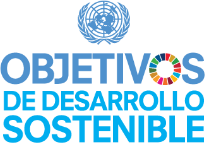
7 - Energia irisgarria eta ez kutsagarria
Pertsona guztiek energia eskuragarria, fidagarria, jasangarria eta modernoa izango dutela bermatzea. Gai gakoak: eskuragarritasun unibertsala, energia garbien proportzioa handitzea, energia eraginkortasuna, ikerketa, energia azpiegituretan eta teknologia garbietan inbertsioa sustatzea, energia zerbitzu moderno eta jasangarriak.
Informazio gehiago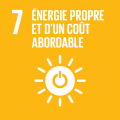
9 - Industria, berrikuntza eta azpiegitura
Azpiegitura erresilienteak eraikitzea, industrializazio inklusiboa eta jasangarria sustatzea, eta berrikuntza bultzatzea. Gai gakoak: azpiegitura fidagarriak, jasangarriak, erresilienteak eta kalitatezkoak, industrializazio inklusibo eta jasangarria, modernizazioa, teknologia eta prozesu industrial garbiak eta ingurumenaren aldetik arrazionalak, ikerketa zientifikoa eta gaitasun teknologikoaren hobekuntza, IKTetarako sarbide unibertsala.
Informazio gehiago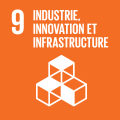
12 - Ekoizpen eta kontsumo arduratsuak
Kontsumo eta ekoizpen eredu jasangarriak bermatzea. Gai gakoak: baliabide naturalen kudeaketa jasangarria eta erabilera eraginkorra, atmosferara, uretara eta lurzorura askatutako partikula kimikoak murriztea, hondakinak gutxitzea, birziklatzea, berrerabiltzea eta murriztea, jardunbide jasangarriak, erosketa publiko jasangarria, bizimodu jasangarriak, erregai fosilei ematen zaizkien laguntza ez-eraginkorrak arrazionalizatzea.
Informazio gehiago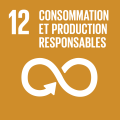
13 - Klimaren aldeko ekintza
Klima aldaketari eta haren ondorioei aurre egiteko premiazko neurriak hartzea. Gai gakoak: mitigazioa, erresilientzia eta egokitzeko gaitasuna, plangintza, estrategiak eta plan nazionalak, hezkuntza eta sentsibilizazioa, efektuen murrizketa eta alerta goiztiarra, Klima Aldaketari buruzko Nazio Batuen Esparru Konbentzioa betetzea.
Informazio gehiago